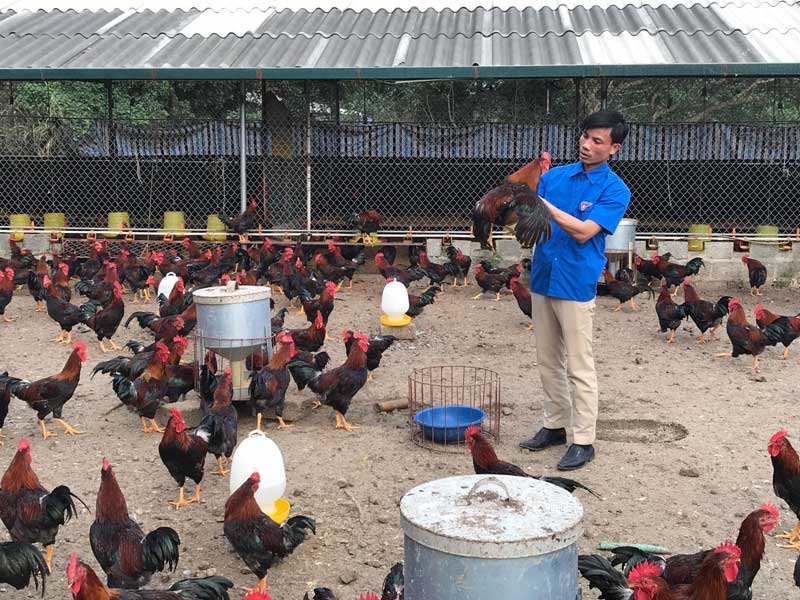



The linked model of raising small chickens
originated from Lac Thuy brought to Mr. Bui Dong Giang, An Son 1village, An
Binh commune (Lac Thuy) an income of 1 billion VND per year.
With a loan from friends and a small amount
of savings, in 2014, he set up a model with 500 pure-bred small chickens which
are carefully selected from the most popular small chicken raising households
in the district. In order to keep the precious and pure- bred characteristics
of the small chickens, he learned from the experience of hatching egg models in
the district, as well as the experiences from seminars and on the Internet. In
the first year of implementing the model, his chickens grow well, meeting the
quality standards and they were all sold. With the interest and loans, he
continued to invest in incubators and expansion of breeding coops. Currently,
his chicken farm has 8,000 - 10,000 laying hens; 2,000 - 3,000 meat chickens, 4
modern incubators with 10 employees. Every month, he exported more than 40,000
pure- bred small chickens to hundreds of households raising chickens throughout
the country. On average, his family earns 1 billion VND after deducting all
expenses every year.
In order to help the brand of Lac Thuy small
chickens compete more highly than other kinds of poultry in the market, as well
as improving profitability per unit of product, Mr. Giang applies the linked
model of value chains, selling the breeding chickens and breeding aliments for
the agent households as well as supporting product consumption. Especially in
An Binh commune, there are nearly 20 households participating in the linked
chain of association of Mr. Giang. Besides, he actively comes to big markets of
poultry in Hanoi, such as Ha Vy market (Thach That), Hai Boi market (Dong Anh),
La Khe market (Ha Dong) and in other provinces to seek stable output for the
agent farms.